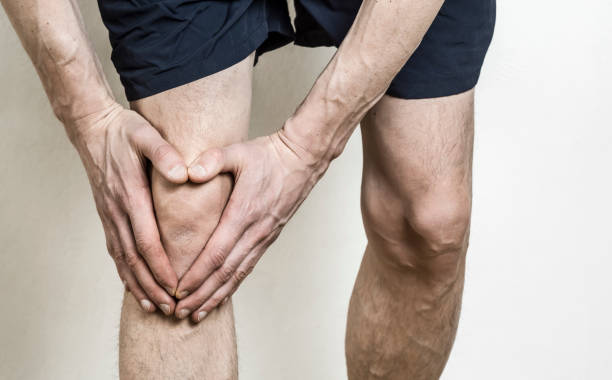Does ACL Injury Heal on Its Own?

Does ACL Injury Heal on Its Own? Insights from Physiotherapy in Newmarket
When you hear the term ACL injury, you might immediately think of athletes, particularly soccer or basketball players. But the truth is, ACL injuries can happen to anyone, not just high-performing athletes. Whether it’s a sudden pivot, an awkward landing, or even a simple misstep, tearing your anterior cruciate ligament (ACL) can be a life-altering event. If you’ve been recently diagnosed with an ACL injury, you’re probably wondering, “Can it heal on its own?” It’s a common question, and at PhysioChiroWellness , we hear it all the time. Let’s dive into this topic and explore what you need to know about ACL recovery, and how physiotherapy in Newmarket can help you regain your strength and mobility.
What Exactly Is an ACL Injury?
Before we talk about healing, let’s get into the basics. The ACL is one of the four main ligaments in your knee that connects your thigh bone (femur) to your shinbone (tibia). It plays a crucial role in stabilizing your knee joint, especially during activities that involve sudden changes in direction, jumping, or stopping. When this ligament gets overstretched or torn, it results in an ACL injury.
There are varying degrees of ACL injuries:
- Grade 1: A mild sprain where the ligament is stretched but not torn.
- Grade 2: A partial tear of the ligament.
- Grade 3: A complete tear, which is the most severe form.
Can an ACL Injury Heal on Its Own?
Here’s the straightforward answer: it depends on the severity of the injury.
- For Minor Injuries (Grade 1): With rest, proper care, and targeted physiotherapy, the ligament can heal over time.
- For Partial Tears (Grade 2): Healing is possible, but it often requires a more structured rehabilitation program to strengthen the knee and stabilize the joint.
- For Complete Tears (Grade 3): Unfortunately, a complete tear will not heal on its own because the ligament fibers cannot regenerate independently. In such cases, surgery combined with post-operative physiotherapy is often the best route to recovery.
At PhysioChiroWellness in Newmarket, we’ve worked with patients across all these scenarios. Whether you need a non-invasive treatment plan or post-surgical rehabilitation, we’ve got you covered.
How Physiotherapy in Newmarket Can Help ACL Injuries
If you’ve been told you have an ACL injury, the road to recovery might feel overwhelming. That’s where physiotherapy in Newmarket comes in—it’s not just about exercises and stretches; it’s about creating a personalized plan tailored to your unique situation.
1. Early Recovery Phase: Reducing Pain and Swelling
In the initial stages, the focus is on managing pain and swelling. Our team at PhysioChiroWellness in Newmarket often uses techniques like manual therapy, therapeutic ultrasound, and kinesio taping to help reduce inflammation and improve circulation to the injured area.
2. Restoring Mobility and Strength
Once the pain subsides, the next step is to regain your knee’s range of motion and rebuild strength in the surrounding muscles. Therapeutic exercises such as leg raises, hamstring stretches, and balance training are key components of this phase.
3. Preventing Future Injuries with ACL Injury Prevention Programs
One of the unique services we offer at PhysioChiroWellness in Newmarket is our ACL Injury Prevention Program. This program focuses on improving your balance, coordination, and muscle strength to lower the risk of reinjury.
What Happens If You Avoid Treatment?
Let’s be honest—ignoring an ACL injury is not a good idea. Without proper treatment, you may experience:
- Chronic knee instability
- Difficulty walking or running
- Increased risk of developing osteoarthritis
It’s easy to think, “I’ll just wait and see,” but delaying treatment can significantly impact your quality of life.
Why Choose PhysioChiroWellness in Newmarket?
At PhysioChiroWellness, we take a holistic approach to healing. Our integrated care model combines physiotherapy, chiropractic care, massage therapy, and even acupuncture to ensure you get the most comprehensive treatment plan. Plus, our team is compassionate, knowledgeable, and committed to helping you get back to doing what you love.
FAQs About ACL Injuries
Q1: How long does it take to recover from an ACL injury?
Recovery time depends on the severity of the injury. For minor sprains, it can take 6-8 weeks. For a complete tear requiring surgery, recovery may take 6-12 months with physiotherapy.
Q2: Can I avoid ACL surgery with physiotherapy?
In some cases, yes. If the tear is partial and your knee remains stable, a structured physiotherapy program can help you regain function without surgery.
Q3: Is physiotherapy painful?
Not at all! While some exercises may challenge your muscles, our goal at PhysioChiroWellness in Newmarket is to work within your comfort level and gradually progress your treatment.
Q4: How soon should I start physiotherapy after an ACL injury?
As soon as possible! Early intervention can help reduce pain, improve mobility, and speed up your recovery.
Get Started Today with Physiotherapy in Newmarket
ACL injuries can feel like a major setback, but with the right care and guidance, you can get back to your daily activities—or even your favorite sport—stronger than before. At PhysioChiroWellness in Newmarket, we’re here to support you every step of the way. Whether you’re dealing with a minor sprain or recovering from surgery, our team is dedicated to helping you achieve your health and wellness goals.
